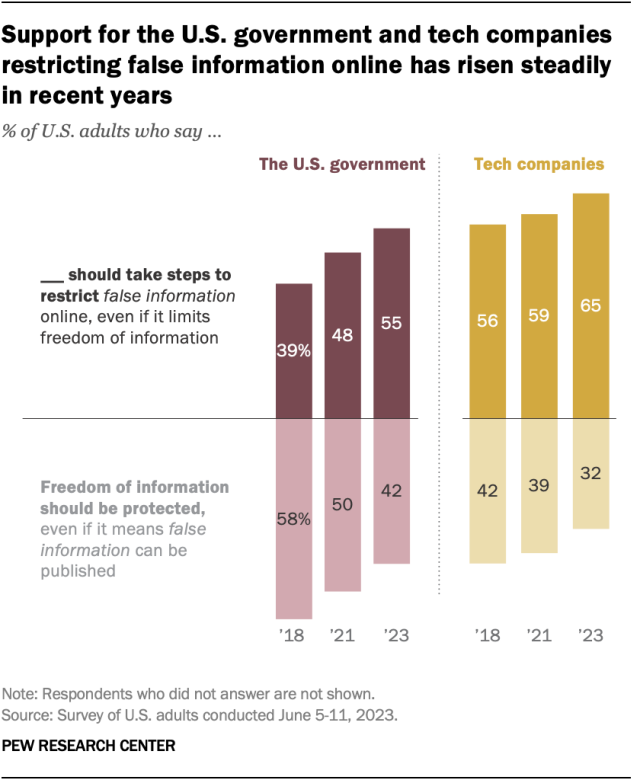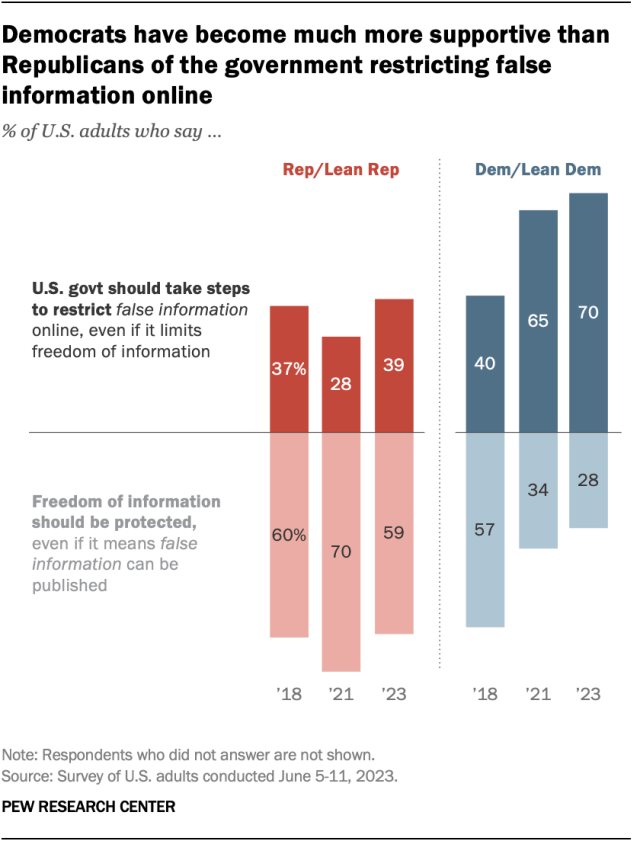How much free speech do Americans want?
Critical Analysis
Find answers to the following questions using the visual above, any links below, and your knowledge of American government and politics:
In 2018 what percent of Americans said that the U.S. government should take steps to restrict false information online, even if it limits freedom of information?
In 2023 what percent of Americans said that the U.S. government should take steps to restrict false information online, even if it limits freedom of information?
Explain whether Americans would prefer that steps to restrict false information be taken by government or tech companies.
Describe the change over time in Americans’ views about restricting false information.
What best explains this change?
Based on the visual below* how does party affiliation impact views on restriction of false information.
AI has the ability to create and spread false information faster than ever. Explain whether you would support restricting the use of AI in 2024 campaigns and elections.
Explain which of the following statements you agree with more: the U.S. government should take steps to restrict false information online, even if it limits freedom of information; or freedom of information should be protected, even if it means false information can be published.
Imagine you were a lawyer arguing against a federal law that restricted false information online. What portion of the Bill of Rights would be the most support for your argument?
Describe how you predict false information is going to impact the 2024 elections.
Learning Extension
Learn more AI deepfakes and hear one in this NPR story: How real is the threat of AI deepfakes in the 2024 election?
Action Extension
Contact your congressional representatives and let them know what you think about legislation to restrict false information.



